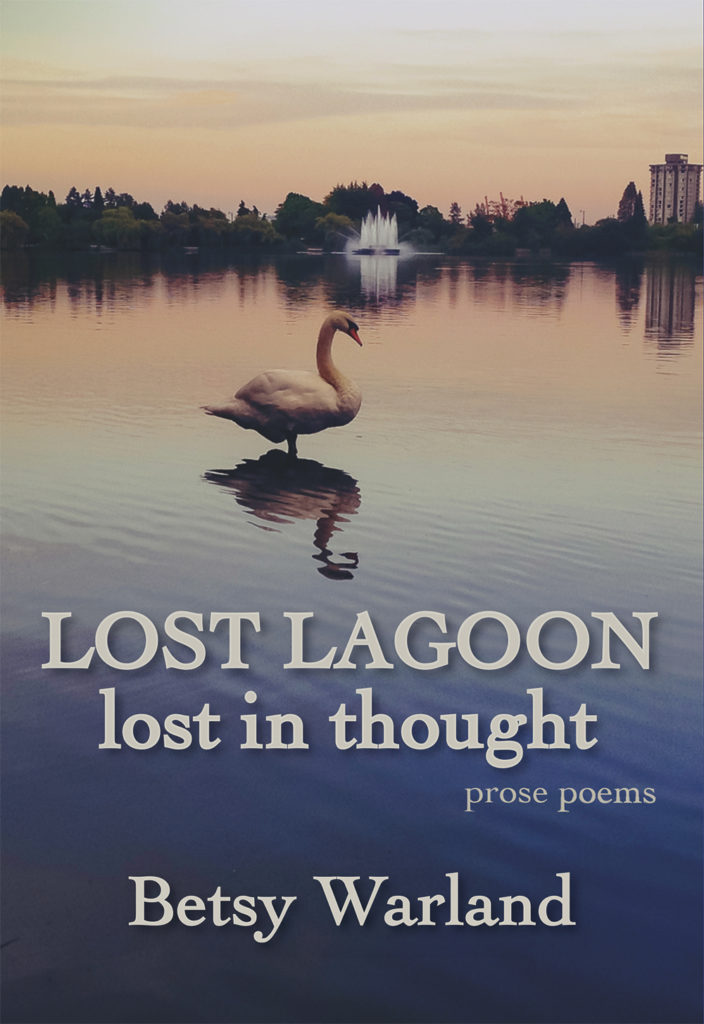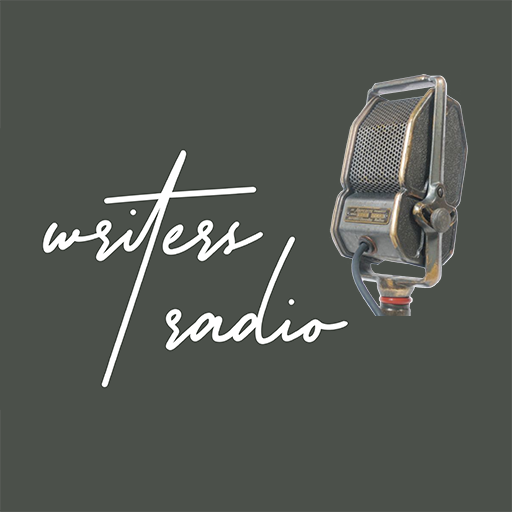Lost wor(l)ds:
Betsy Warland’s Lost Lagoon/lost in thought
by K.I. PRESS
Betsy Warland’s Lost Lagoon/lost in thought is an elegant and bittersweet entry in the renowned Canadian feminist writer’s body of work. Warland refers to the book as “an elegy” (“#51/August 2018: Once again, ‘Very High Health Risk’ air”) for a lagoon that was not really “lost,” but “destroyed” (“#50/It is human nature to walk in circles when”).

Vancouverites will know the Lost Lagoon immediately, and many visitors to Vancouver—like the ones the narrator gives directions to in the book—have trekked past it or around it in Stanley Park. Whether you are familiar with the lagoon or not doesn’t matter, as Warland communicates plenty of information about the geography, wildlife, and history of this “aberrant-shaped lima bean” (“#31/Picture it as a slightly aberrant-shaped lima bean”).
The prose in Lost Lagoon/lost in thought is clean and minimal, jam-packed with meaning but not with extra words. Only one poem has line breaks; the prose poems of the rest of the book read like a series of poetic short essays or a fragmented documentary.
Warland’s use of the third person, referring to herself/the narrator as “The Human” throughout the main body of the book, stands out. Warland explains in “#11/The Human ponders. Does a Google search.” that “The Human” clearly separates her from the natural world, shows her outsider status, and emphasizes the “disjunction” between human and animal.
Warland dedicates the book to three people, one well-known: the performance poet Pauline Johnson, who gave the body of water “Lost Lagoon” its name (for how, at the time, it disappeared when the tide was particularly low). The other two women in the dedication Warland calls the “Swan Lady” and the “Beaver Lady”: women with special relationships to the animals of the Lost Lagoon, but who, ultimately, could not keep them from harm.
Crows, otters, turtles, swans, beavers, eagles, and owls—many of them destroyed or destroying, lost or losing—appear throughout the book. Lost Lagoon connects place and loss, how observing a place keenly emphasizes your human apartness, how places lose their identities because of you. Geography studies the relationship between humans and places. Lost Lagoon/lost in thought could be thought of as a geography book.
Despite the “disjunction” between humans and animals explored in the book, we are all subject, eventually, to the same loss. As the numbered prose poems go on, The Human loses her humans too:
The morning they learn of their mutual friend’s death, The Human and neighbour
writer friend meet for a consoling walk. When the door of death opens, humans briefly cherish each other more before the door closes on their loved ones’ unalterable absence. The two grieving friends walk slowly around the lagoon. (“#27/The morning they learn of their mutual friend’s death”)
The Lost Lagoon is a focal point for loss in this powerful book.
K.I. Press is a Winnipeg writer. She teaches at Red River College Polytechnic. Her books include Exquisite Monsters (Turnstone) and Types of Canadian Women (Gaspereau).
Read Full article on Arcpoetry.ca




Recent Comments